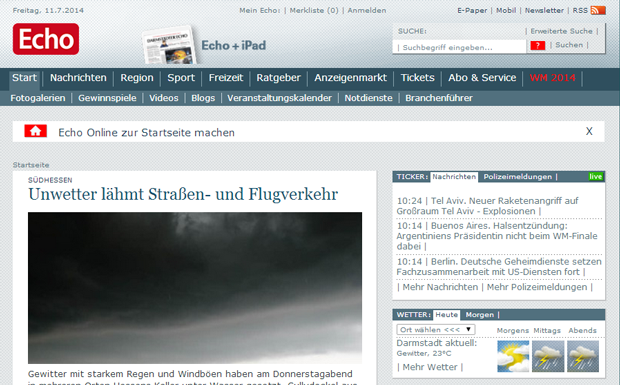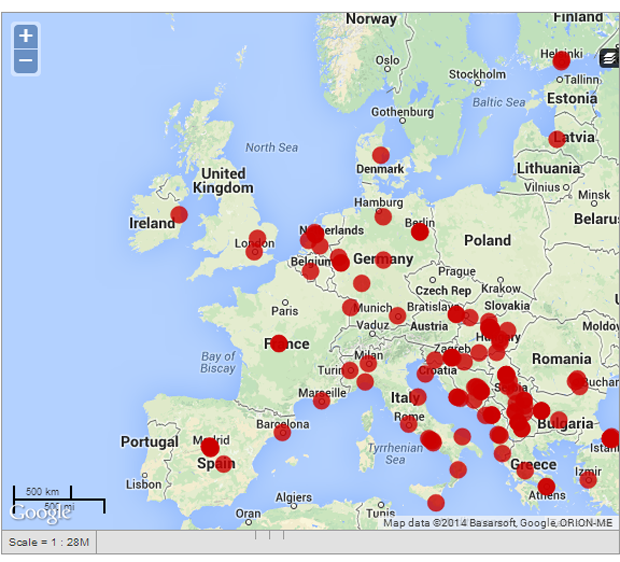11 Jul 2014 | Awards, News, Turkey

Meltem Arikan
Three months have passed since the 2014 Index Awards and we caught up with arts nominee, Meltem Arikan. The Turkish playwright and author told Index she has finished the script of a new play, Sheep Republic. She hoped it would be staged in Turkey, but the political situation in the country prevents this from happening. She looks forward to hopefully having it staged in the UK with the team who brought her previous play, “Mi Minor” to life.
Index: What projects have you been working on since the Index Awards?
Arikan: I wrote a performance piece for The International Performance Festival Cardiff called “Recalling love: And woman and man” and it was performed in June by Memet Ali Alabora and Pinar Ogun, whom I created Mi Minor with. Then I finished writing the script of my new play “Sheep Republic” which is about oppression and how easily it’s accepted by people.
The play was written to be staged in Turkey originally, however it doesn’t look like it is going to be possible because of political reasons. So we want to stage it here with the creative team of “Mi Minor”.
Nowadays I am working on another theatre piece where I’m questioning the concept of “belonging” through my own experiences, feelings and observations of nationalities, races, languages and communities; this time to be performed in Welsh language, and quite unusually English language will be the foreign language. It will be previewed in Eisteddfod Festival as part of Theatr Genedlaethol’s Cwt Drama on 7 August.
Index: What do you hope for the future of these projects and your life in the next coming months?
Arikan: I always find questions about hope quite difficult to answer. So much that I have even named one of my novels “Hope is a curse.” My agent Meg Davis has introduced my banned book “Stop hurting my flesh” to publishers in the UK. It’s an ongoing process but the idea of my novel being published, excites me very much, just like the thought of “Mi Minor” to be staged in the UK.
Index: Before the awards, did you feel you had less recognition?
Arikan: After being nominated by Index, in February 2014, I was invited to PEN Ethiopia 3rd congress with Julia Farrington from Index, where I met the President of German PEN, Josef Haslinger, who has recently invited us to Frankfurt Book Fair in October to introduce my story and my work.
It was great to be nominated by Index and it surely gave me more recognition. Moreover, being a part of the Index family and to be able to write articles about freedom of speech and expression is just as important for me.
Last year during Gezi Park demonstrations it was hard enough to deal with the false allegations made in various media about my play and the “Mi Minor” creative team. We were accused of rehearsing Gezi park demonstrations with our play. We were completely exhausted, and didn’t feel safe to leave our houses in Istanbul. They were making a lot of TV shows about “Mi Minor” which included an edited version of one of my speeches that I made six years ago about secularism. As a result of these accusations I have received thousands of death and rape threats. The fear I witnessed in my son’s eyes and the anxiety that my partner was living through was what upset me the most. I still feel fragile when I recall the moments I had to leave them behind and come to the UK to stay alive. Because of the notorious recognition, I was even being cautious while walking on the streets of London in the first couple of months of coming here.
Index: How has your life changed since being nominated for an Index Award?
Arikan: I came to the UK with one piece of luggage, leaving everything behind, then I met Julia Farrington and she offered to do an interview with me. So we archived my story with three interviews which was very difficult and encouraging for me at the time.
Later I was nominated for an Index Award, and I met Index staff through the Index Awards and when they asked me to write for the website, I was delighted. Writing is what keeps me sane. I don’t know how to survive without writing so I am thankful to be supported as a writer by Index On Censorship.
This article was posted on July 10, 2014 at indexoncensorship.org
11 Jul 2014 | Germany, Mapping Media Freedom, News

A local newspaper in the western German city of Darmstadt is at the centre of a legal case that will measure whether readers’ comments are protected by Germany’s press freedom laws.
On June 24, police and the Darmstadt public prosecutor arrived with a search warrant at the offices of the newspaper Echo. A complaint had been filed over a 2013 reader comment on Echo’s website. Months later, a local court issued a search warrant to force the newspaper to hand over the commenter’s user data.
The comment, which was left under the username “Tinker” on an article about construction work in a town near Darmstadt, questioned the intelligence of two public officials there. Within hours, Echo had removed the comment from its website after finding that it did not comply with its policy for reader comments. According to a statement Echo released after the June confrontation with police, the two town administrators named in the comment had filed the complaint, alleging that it was insulting. This January, Darmstadt police sent the newspaper a written request for the commenter’s user data. Echo declined.
When police showed up at Echo’s offices five months after their initial request for the commenter’s identity, the newspaper’s publisher gave them the user data, preventing a search of Echo’s offices. A representative for the Darmstadt public prosecutor later defended the warrant.
“It’s our opinion that the comment does not fall under press freedom because we assume that the editorial staff doesn’t edit the comments,” Noah Krüger, a representative for the Darmstadt public prosecutor, told Echo.
According to Hannes Fischer, a spokesperson for Echo, the newspaper is preparing legal action against the search warrant.
“We see this as a clear intervention in press freedom,” Fischer said. “Comments are part of editorial content because we use them for reporting – to see what people are saying. So we see every comment on our website as clearly part of our editorial content, and they therefore are to be protected as sources.”
In early 2013, a search warrant was used against the southern German newspaper Die Augsburger Allgemeine to retrieve user data for a commenter on the newspaper’s website. In that case, a local public official had also filed a complaint over a comment he found insulting. The newspaper appealed the case and an Augsburg court ruled that the search warrant was illegal. The court rejected the official’s complaint that the comment was insulting, but also ruled against Die Augsburger Allgemeine’s claim that user comments are protected under press freedom laws.
In Echo’s case, the commenter’s freedom of speech will likely be considered in determining whether the comment was insulting. If convicted of insult, the commenter could face a fine or prison sentence of up to one year. Given the precedent from the 2013 case and the public prosecutor’s response, it’s unclear whether press freedom laws may be considered against the search warrant. Ulrich Janßen, president of the German Journalists’ Union (dju), agreed that user comments should be protected by press freedom laws. “If the editors removed the comment, then that’s a form of editing. That speaks against the argument that comments are not editorial content,” Janßen said. Warning that the search warrant against Echo may lead to intimidation of media, Janßen cautioned, “Self-censorship could result when state authorities don’t respect press freedom of editorial content.”
Recent reports from Germany via mediafreedom.ushahidi.com:
Court rules 2011 confiscation of podcasters’ equipment was illegal
New publisher of tabloid to lay off three quarters of employees
Police use search warrant against newspaper to obtain website commenter’s data
Blogger covering court case faced with interim injunction
Competing local newspapers share content, threatening press diversity
Transparency platform wins court case against Ministry of the Interior
This article was posted on July 11, 2014 at indexoncensorship.org
10 Jul 2014 | Europe and Central Asia, Ireland, News

(Image: Quka/Shutterstock)
A recent court ruling in Ireland could have reintroduced the concept of criminal libel to the state, despite criminal defamation offences being abolished as recently as 2009.
The case itself was one of a particularly grim relationship break up. Names are not available as the people involved were also locked in a criminal case in which the male partner was accused of rape and false imprisonment, though he was acquitted of both.
But the details available are: couple breaks up in January 2011. They remain in touch. In April 2011, man goes to woman’s house to, according to the Irish Times’s report “confront her over a perceived infidelity”. Man later leaves woman’s house, but not before stealing her phone. Man goes through woman’s messages, which suggest she has started a new relationship. Man opens woman’s Facebook on phone and posts remarks from her account, making it appear that she is presenting herself as a “whore” who would take “any offers”. Drink was a factor, as the Irish court reporting phrase goes.
This action led to a charge under the Criminal Damage Act 1991, under which “A person who without lawful excuse damages any property belonging to another intending to damage any such property or being reckless as to whether any such property” can find themselves liable to a large fine and up to 10 years in prison.
In this case, the defendant was found guilty and fined €2,000.
The judge, Mr Justice Garrett Sheehan, is reported to have asked how to assess the “damage” when nothing had actually been broken. Prosecutors replied that the case was in fact more akin to harassment and that the “damage” had been “reputational rather than monetary”.
The first question here is obvious: if the facts of the case were more akin to harassment, then why were charges not brought under Section 10 of Ireland’s Non-Fatal Offences Against The Person Act, which would cover anyone who “by his or her acts intentionally or recklessly, seriously interferes with the other’s peace and privacy or causes alarm, distress or harm to the other”? Wouldn’t this be the obvious piece of legislation to use?
But after that, there are a few more: Who actually owns a Facebook profile? And does reputation count as property? And crucially, has Mr Justice Sheehan created a criminal libel law?
Ireland has a complicated relationship with social media. On the one hand, to be plain about it, the big online companies create a lot of employment in Ireland. Facebook, Twitter and Google all employ a lot of people in the country. On the other hand, it is susceptible to the same moral panics as anywhere else, and in a small, largely homogenous country, panics can be enormously amplified.
When government minister Shane McEntee committed suicide in Christmas 2012, the tragic story somehow became conflated with social media and online bullying. McEntee’s brother blamed the minister’s death on “people downright abusing him on the social networks and no names attached and they can say whatever they like because there’s no face and no name”. But his daughter later refuted that claim, saying: “Dad didn’t use Twitter and wasn’t a huge fan of Facebook. So I don’t think you can blame that and I’m not going to start a campaign on that.”
The subsequent debate on social media bullying was almost tragic in its simplicity, the undisputed highlight being Senator Fidelma Healy-Eames describing to the Parliamentary Joint Committee on Transport and Communications how young people are “literally raped on Facebook”.
As ever in discussions that involve social media, a generation gap opens up, or is invoked, between younger “natives” who supposedly instinctively understand the web, and a political and judicial class who are apparently hopelessly out of touch. There is certainly an element of truth to this (I have sat in courts and watched judges express utter bafflement at the very concept of Twitter), but in general, what is actually happening is legislators, magistrates and the judiciary are desperately trying to apply existing, supposedly universal laws to phenomena to which they are simply not suited. This is where controversy usually arises, for example in the UK’s use of public order laws when the only threat to public order is a Twitter mob — as in the case of jailed student Liam Stacey; or use of laws against menacing communications in instances where it’s clear no menace was intended — such as Britain’s now infamous Twitter Joke Trial.
In the current Irish case, it seems obvious that harassment would have been the more relevant charge, but in this instance, that’s not what we have to worry about. The real concern is that by apparently putting reputation in the category of property which can suffer damage, the court has now created a precedent where damage to a person’s reputation, whether by “fraping”, tweeting, or even just the getting facts wrong in a news story, could lead to criminal sanction.
And the very worst thing is that no one seems to have noticed.
From the introduction of the new blasphemy law onward, Ireland has seen a slow, stealthy erosion of free speech. It’s not clear what will get people to start paying attention, but the country needs to be more vigilant.
This article was posted on July 10, 2014 at indexoncensorship.org
9 Jul 2014 | Campaigns, Press Releases
Over 170 cases have been submitted on a new media freedom crowdsourcing platform since its launch in May, while about half of the mapped cases of censorship and violations that spread in all 28 EU member states and candidate countries occurred in southern and southeast Europe.
Mediafreedom.ushahidi.com is a website that enables media professionals and citizen journalists to report and map media freedom violations across the 28 EU member states plus candidate countries. Ushahidi means ‘testimony’ in Swahili. Single cases can be uploaded through direct reporting on the platform or sent via email and be visualised on a Google map.
Information on the map reveals some common trends and similar problems across the region.
Over 40 of the reported cases involve legal measures taken against a journalist or a media, suggesting the pressing need of legal support and protection of those affect. Despite the existence of several associations and NGOs offering such support, journalists often fail to get the help they need on time, if ever.
Meanwhile arrests, verbal and physical attacks continue to be used as a tool to scare or discredit professionals. In some cases, journalists are detained in the field without clear explanation or warrant only to be released several hours later, when they can no longer report the event they originally intended.
A high concentration of violations is observed in Turkey, Italy and Serbia.
In Turkey, where 17 cases have been reported, financial and legal pressure seems to be one of the main tools used to silence critical voices.
In Serbia, where 16 cases have been reported, May’s devastating floods unleashed a series of worrying developments that made the international and local community turn their eyes towards the state of media freedom and spreading censorship in the country. For instance, several blogs experienced blockades and attacks after criticizing the government’s role and reaction to the floods.
In Italy 15 cases have been reported, with many involving threats and assault.
About the project
The Ushahidi media freedom crowd-sourcing platform has been developed in partnership by Osservatorio Balcani e Caucaso and Index on Censorship. OBC participates in the initiative as part of the EU-funded Safety Net for European Journalists project, implemented in partnership with SEEMO, Ossigeno Informazione, Professor Eugenia Siapera (Dublin City University).
For more information please contact:
[email protected]
[email protected]




